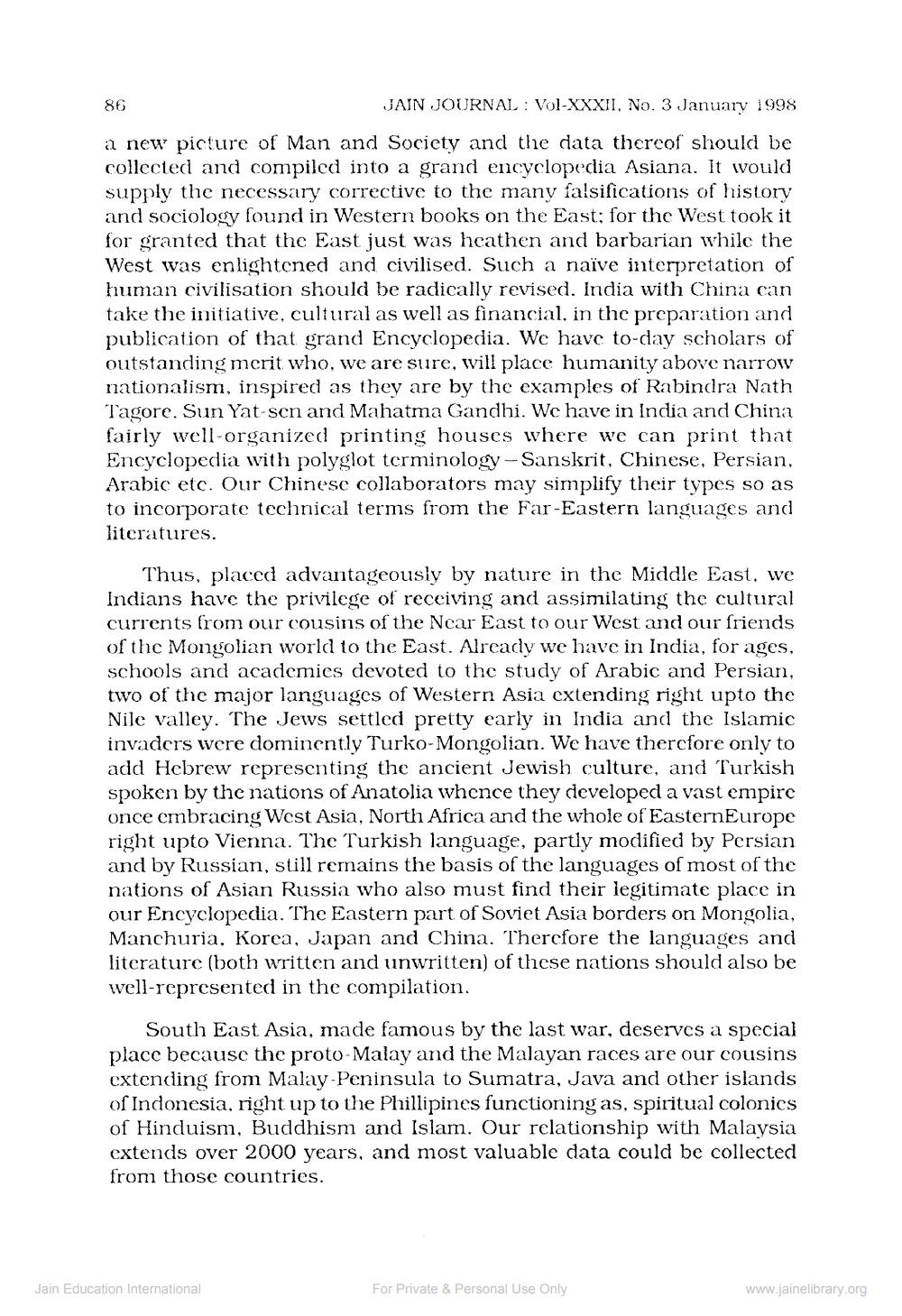________________
JAIN JOURNAL: Vol-XXXII, No. 3 January 1998
a new picture of Man and Society and the data thereof should be collected and compiled into a grand encyclopedia Asiana. It would supply the necessary corrective to the many falsifications of history and sociology found in Western books on the East; for the West took it for granted that the East just was heathen and barbarian while the West was enlightened and civilised. Such a naïve interpretation of human civilisation should be radically revised. India with China can take the initiative, cultural as well as financial, in the preparation and publication of that grand Encyclopedia. We have to-day scholars of outstanding merit who, we are sure, will place humanity above narrow nationalism, inspired as they are by the examples of Rabindra Nath Tagore. Sun Yat-sen and Mahatma Gandhi. We have in India and China fairly well-organized printing houses where we can print that Encyclopedia with polyglot terminology - Sanskrit, Chinese, Persian, Arabic etc. Our Chinese collaborators may simplify their types so as to incorporate technical terms from the Far-Eastern languages and literatures.
86
Thus, placed advantageously by nature in the Middle East, we Indians have the privilege of receiving and assimilating the cultural currents from our cousins of the Near East to our West and our friends of the Mongolian world to the East. Already we have in India, for ages, schools and academies devoted to the study of Arabic and Persian, two of the major languages of Western Asia extending right upto the Nile valley. The Jews settled pretty early in India and the Islamic invaders were dominently Turko-Mongolian. We have therefore only to add Hebrew representing the ancient Jewish culture, and Turkish spoken by the nations of Anatolia whence they developed a vast empire once embracing West Asia, North Africa and the whole of Eastern Europe right upto Vienna. The Turkish language, partly modified by Persian and by Russian, still remains the basis of the languages of most of the nations of Asian Russia who also must find their legitimate place in our Encyclopedia. The Eastern part of Soviet Asia borders on Mongolia, Manchuria, Korea, Japan and China. Therefore the languages and literature (both written and unwritten) of these nations should also be well-represented in the compilation.
South East Asia, made famous by the last war, deserves a special place because the proto-Malay and the Malayan races are our cousins extending from Malay-Peninsula to Sumatra, Java and other islands of Indonesia, right up to the Phillipines functioning as, spiritual colonies of Hinduism, Buddhism and Islam. Our relationship with Malaysia extends over 2000 years, and most valuable data could be collected from those countries.
Jain Education International
For Private & Personal Use Only
www.jainelibrary.org




